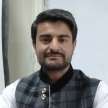
Reading skills
A good reader lives a thousand lives before he dies
Reading
Speaking, Writing, and Listening skills, it is one among the four primary language learning skills. So, it is looking at a collection of written symbols and deriving meaning from them. When we read, our brains translate the written symbols/letters, punctuation, and spaces that our eyes see into words, sentences, and paragraphs that make sense to us. We can read aloud or silently (in our heads). Reading is a talent that allows us to receive information. But to enunciate the words we read; speaking is a necessary component of the difficult reading process. Reading is useful in this way since it allows us to both receive and sends information. Reading is also the capacity to recognize words in print (a process known as word recognition) and to infer meaning from them (a process called comprehension).
Purpose of reading
Reading has many purposes following them are:
Read for enjoyment.
For knowledge.
to educate.
To instruct.
As a pastime.
To examine.
To finish a task.
For understanding.
Obstacles to Effective Reading
Some of the important obstacles to effective reading are as follows:
Ø Lack of Grammatical Competence
Many people struggle to read efficiently because they cannot decipher the text's grammatical and lexical components. They are unable to distinguish between and identify the words, sentences, and expressions utilized in the text. It makes reading more difficult. If the reader cannot understand the text grammatically, he may stop reading.
Ø Lack of motivation
Motivation and discipline are needed to read for information and knowledge. Many people consider reading to be a tedious and time-consuming activity. A barrier to reading may be created by a lack of sufficient motivation and goals.
Ø Less Concentration
When reading, if the reader is not focused, he will simply turn page after page without much understanding. The psycholinguistic process of reading. The reader must pay close attention.
Ø Size of the Book
People typically like to read short articles and writings. The reader loses interest in a book if it has a large number of pages.
Ø Articulating the Words Loudly
Many readers have a habit of murmuring or articulating the text’s words aloud. They buzz each word, which makes it difficult to read quickly.
Ø Narrow Eye Span
Many readers read the text with independent word-to-word eye movements. Their eyes have a small range. It not only slows down reading but also has an impact on understanding. decreased speed and comprehension when the attention span is less. For readers to increase their eye span, adequate instruction and approaches are necessary.
Techniques of Effective Reading
Effective reading strategies include the following:
Highlighting Key Phrases
When you later reread the text, this can be a helpful technique to help you remember what you thought was significant. It's crucial not to overemphasize, though. Consider reading a paragraph at a time, for instance, before underlining or highlighting. This will make it possible for you to pick out its key points. As an alternative, you might discover that it is helpful to read an entire chapter first to gain a sense of the key concepts before going back and highlighting the details that support the argument.
Add Notations to the Margin
If you don't want to mark the book, you can use Post-it notes instead. You can do this with both physical copies and electronic books (for example, if it is a library book). This method makes it easier for you to interact with the material, which increases the recall of what you read.
Use the Signposts within the Text Itself
Watch out for words like "most importantly" and "critically." These emphasize the themes that the author(s) thought were crucial.
Objectives/Goals of Reading
Use reading to practice and strengthen other skills (grammar, vocabulary, pronunciation, and writing). Reading can be used to practice grammar structures, novel lexical items, and pronunciation components, just like oral dialogues, brief works, and listening exercises can.
Reading to improve one's reading skills. Better readers always come from reading. Skimming, scanning, predicting, and reading for in-depth comprehension are all examples of reading skills. Through reading, these are refined.
Learn to think critically by reading. Critical thinking abilities help communication in all contexts. People must prioritise, come to conclusions, compare, draw inferences, and more to do everything from holding a phone conversation to developing a business plan. Reading can offer the opportunity to put these talents to use and hone them.






Comments
There are no comments for this story
Be the first to respond and start the conversation.